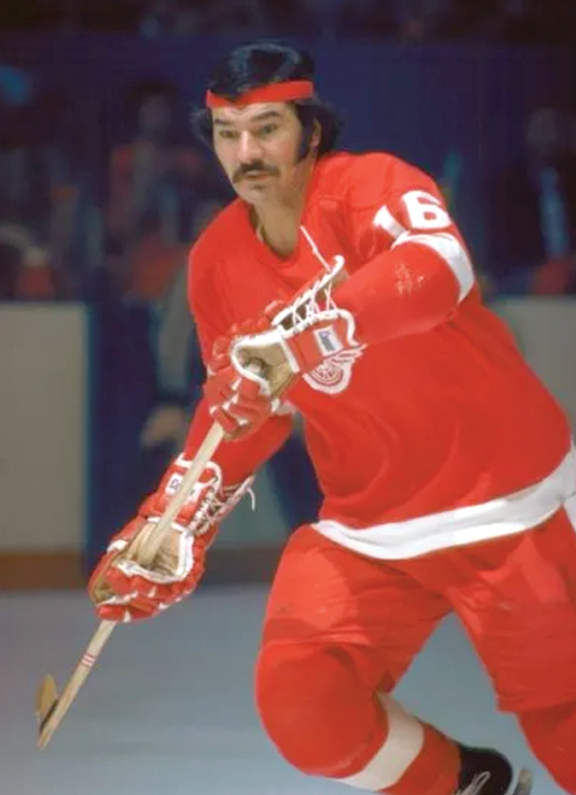
By Lee Egerstrom
Minnesota’s sports world and Native American communities learned this past month that hockey great and former Olympian Henry Boucha died while being treated for a heart ailment. He was 72.
That won’t end Boucha’s influence in the state. His memory will live on for generations to come and his advocacy work and promotion for Native American education will carry forward.
A big audience will come next year when Twin Cities Public Television (TPT MN) begins showing a documentary series about Native American athletes who became Olympians. The actual title of this documentary work and a schedule for its release is still to be determined, said Jessica Prody, communications director for TPT.
It was produced by Leya Hale (Sisseton Wahpeton Dakota and Dine), an award winning producer for Twin Cities Public Television. Boucha is one of the featured Native Olympians and collaborated on the project.
“Leya was the producer and Henry was the chief consultant for the documentary,” Prody said. He originated the idea. His journey from high school hockey to the Olympics and then to professional hockey is an integral party of the presentation.
Henry got to see the final (version) before his death, she said.
Boucha’s family announced he died Sept. 18 while being treated for a heart condition in the Twin Cities. Funeral services were scheduled for Sept. 29 back home in Warroad, his hometown and where he had most recently lived.
The funeral was scheduled for Gardens Arena where Warroad High School plays hockey games and where Boucha, an Ojibwe with family ties on both sides of the U.-S.-Canadian border. His high school jersey hangs from the rafters in the arena to help celebrate Warroad’s hockey history and successes over the years.
It was at Warroad where Boucha’s name became indelibly linked with hockey. He was a star player for the team that played Edina for the state high school championship in 1969. Edina won the game 5-4 in overtime after Boucha was sidelined with a punctured eardrum – a hockey story relived and retold by hockey fans every year high schools gather for the state tournaments.
After that, Boucha served in the Army, was a member of the 1972 Silver Medal winning U.S. Olympic team, and then played professionally with National Hockey League and World Hockey Association teams.
Detroit Red Wings drafted him in the second round of the NHL players draft in 1971, had successful seasons there, and then was traded to the former Minnesota North Stars. He was hit by a stick in a game against the Boston Bruins in 1975 that left him mostly blind in his left eye, an event that started to bring his NHL career to an end.
From 1971 to 1977, he plans for the Red Wings, the North Stars, the Kansas City Scouts and Colorado Rockies, and with the Minnesota Fighting Saints.
Two of Boucha’s cousins, Gary Sargent and T.J. Oshie, have also been NHL hockey players, keeping alive northern Minnesota and Ojibwe ties to hockey.
Sargent was a hockey great at Bemidji Statue University before his professional career. He played from 1975 to 1983 with the Los Angeles Kings and Minnesota North Stars.
Oshie contributed to Warroad High School’s hockey legacy after Boucha and was a member of the Washington Capitols’ 2018 Stanley Cup championship team.
Boucha was inducted in the U.S. Hockey Hall of Fame in 1995 after his playing days.
He has lived for a time in Alaska, back at Warroad, and lived and worked as a real estate agent and education consultant for several years in the Twin Cities metro area.
He published an autobiography in 2013, entitled Henry Boucha, Ojibwa: Native American Olympian. It is available at many Minnesota bookstores or can be ordered by them
Boucha told The Circle in 2020 that he had to “re-invent” himself after hockey. The book, he said, continued to help that process. He hoped the TPT production will also continue that process on, showing that at least 21 great athletes and achievers were also Native Americans.
“I want these stories to be an inspiration for the next generation of Native kids,” he said in the Circle article. “I had to regain my identity after my hockey days. That isn’t the way it should be.”
Since becoming a licensed real estate agent in 1987, Boucha said he felt compelled to promote Native America pride and public awareness of their contributions to greater American society.
“After hockey, I found myself in my culture, my traditions, (and) my spirituality. I want young Native Americans to find this strength that we all have been given and don’t always recognize.”
Following that rediscovery, Boucha worked as a youth hockey coach and also with Ojibwe and American Indian education programs at Warroad schools. Later, living in White Bear Lake and working as a metro area realtor, he also served as an American Indian education consultant for the 24 suburban schools in the South Washington County School District.
He also served as a board member of Kah-Bay-Kah-Nong Inc., an Ojibwe word for Warroad that is a nonprofit he founded to support Native education and related programs. In other community service work, he was board members for the National Coalition Against Racism in Sports and Media organization based in Minnesota, for the Juel Fairbanks Chemical Dependency board in St. Paul, and for Ain Dah Yung Center and its housing programs, also in St. Paul.
A preview of the forthcoming TPT production was recently shown on public
television. The preview can be seen at https://www.pbs.org/video/remembering-henry-boucha-40364.






